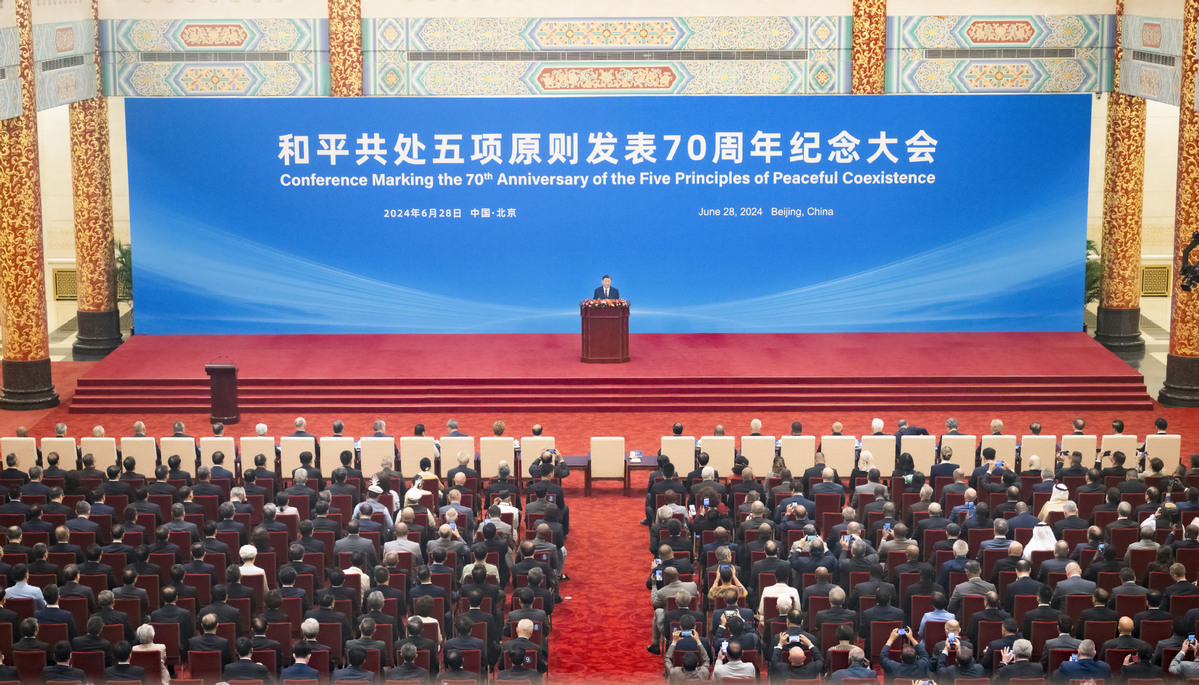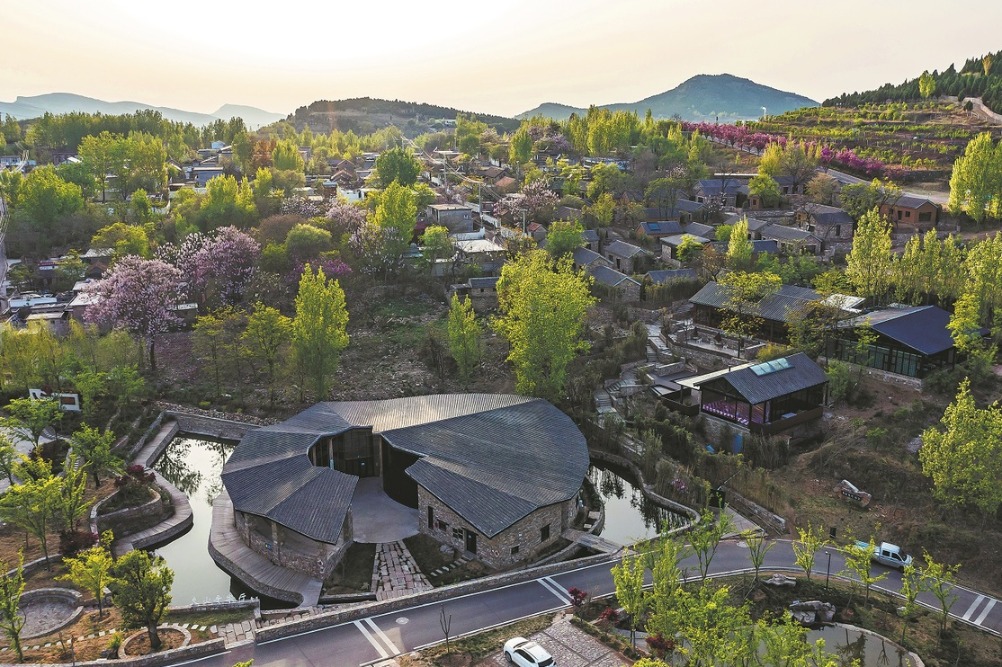Iconic China-proposed initiative bolsters global prosperity, justice
Experts: Xi's vision has enriched essence of Five Principles of Peaceful Coexistence






The Five Principles of Peaceful Coexistence are China's commitment to the world and play an important role in guaranteeing that international collaborations are just and advantageous for all involved, global experts said.
In a key address on Friday in Beijing to mark the 70th anniversary of the Five Principles of Peaceful Coexistence, President Xi Jinping underlined the "robust resilience and everlasting relevance" of the five principles, saying that the vision of building a community with a shared future for mankind is the most effective move to sustain, promote and upgrade the principles.
The five principles — mutual respect for sovereignty and territorial integrity, mutual nonaggression, mutual noninterference in each other's internal affairs, equality and mutual benefit, and peaceful coexistence — have been the bedrock of China's independent foreign policy of peace since they were proposed by the Chinese leadership in the 1950s.
Wirun Phichaiwongphakdee, director of the Thailand-China Research Center of the Belt and Road Initiative, said the five principles are China's commitment to the world and have been practiced over the past 70 years, and they represent common values upheld by peace-loving countries around the world.
He said that China is a major country that sticks to the path of independent and peaceful development, which is different from the Western approach, and added that experiences from Chinese modernization are benefiting the Global South.
"Every step that China has moved forward will benefit world peace, and China's development will also help to build a more prosperous world," Wirun said.
He highly praised Xi's vision of building a community with a shared future for mankind and the concepts of the Global Development Initiative, Global Security Initiative and Global Civilization Initiative.
The vision and initiatives have enriched the essence of the five principles amid the great changes in the world, and "Xi's diplomatic thinking will further contribute to world justice and peace", Wirun said.
Sourabh Gupta, a senior fellow at the Washington-based Institute for China-America Studies, said the five principles are a major Asian contribution to global international relations, ranking perhaps as high as the Atlantic Charter of 1941, and have become part of the body of customary international law.
The five principles were announced at the beginning of the re-rise of Asia and post-colonial Asia and Africa in the international system. The salience of the five principles will only increase in international politics with the growing heft of the Global South — and led by the BRICS grouping — in international affairs, given that these countries are deeply invested in these principles, Gupta said.
Ukeru Magosaki, a former official with Japan's Ministry of Foreign Affairs, said, "President Xi's call for promoting the Five Principles of Peaceful Coexistence and building a community with a shared future for mankind amid global changes and the search for a new international order holds great significance in international politics."
Changes in economic power have led to changes in the diplomatic order, and as a new international order forms, it is inevitable that China will play a central role, said Magosaki, adding that "there has been significant attention on what principles China will put forward".
"Given the reality of international politics, the element that 'might makes right' cannot be denied. In this context, it was quite possible that China, which has gained global power, would assert its own ideas as 'justice'. In this situation, President Xi's call to promote the Five Principles of Peaceful Coexistence and to build a community with a shared future for mankind is something we wholeheartedly welcome as a member of the international community," he said.
"China has shown a commitment to maintaining the 'fairness' that it has cultivated throughout its history. We appreciate this stance and wish to work together to establish these principles," he added.
The future international order could be a choice that is different from the United States-led order in which "might makes right", and in the long term, an international order based on the five principles is far more desirable for humanity, Magosaki said.
Shakeel Ahmad Ramay, CEO of the Asian Institute of Eco-civilization Research and Development in Islamabad, Pakistan, said that China is committed to taking practical steps to achieve the vision of the five principles and of building a community with a shared future for mankind, to tackle the challenges that the world faces today.
China launched the Global Security Initiative to promote common, comprehensive and sustainable security, the Global Development Initiative to share prosperity, the Global Civilization Initiative to promote friendship and peaceful coexistence, and the Belt and Road Initiative to promote high-quality development and prosperity for everyone, he said.
Xu Weiwei in Hong Kong and Chen Yingqun in Beijing contributed to this story.
- International students envoys of Chinese culture
- CGTN documentary on fighting terrorism: Darkness over Urumqi
- Giant panda pair gifted to Hong Kong come out of quarantine
- Rural China becomes a hotspot for young people
- Global smart grid offers solutions to climate change, biodiversity loss
- Xi chairs CPC leadership meeting to review disciplinary inspection report

































